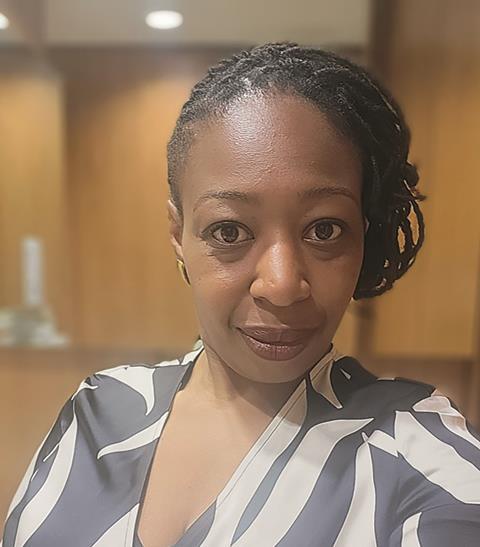Who? Sabrina Simpson, solicitor, Coram Children’s Legal Centre, London.

Why is she in the news? Represented a mother who challenged the Legal Aid Agency’s refusal to grant legal aid for her excluded son’s Independent Review Panel (IRP) hearing. The mother was not successful in obtaining legal aid on the facts, but Coram said the judgment provides clear guidance that practitioners can rely on in future exceptional case funding applications where a school exclusion concerns substantive discrimination.
Thoughts on the case: ‘The High Court has for the first time recognised that the article 6 [Convention] right to a fair hearing can be engaged in permanent exclusion appeals before the IRP. Before this case, it was commonly believed that article 6 could never apply in these hearings, as initially reflected in the lord chancellor’s guidance on exceptional case funding, which misinterpreted a Court of Appeal case, Tom Hood.
‘In our case, the Legal Aid Agency argued that only the county court or SEND tribunal could make “decisive determinations” on substantive discrimination, and thus, article 6 did not apply to IRP appeals. The High Court rejected this argument. This judgment is a breakthrough, as it ensures the “legal aid safety net” (ECF) will apply when there is a risk of an article 6 breach due to a lack of legal representation.
‘Many exclusions involve children facing disability or race discrimination. Demand for representation remains high, and families who cannot afford a lawyer should not be left with no help on life-changing decisions for children.
‘We hope this judgment leads to fair hearings and improved access to legal advice for families.’
A Ministry of Justice spokesperson said: ‘We welcome the High Court judgment which upheld the decision of the Director of Legal Aid Casework and found that the challenge to the guidance of the Lord Chancellor was totally without merit.’
Why become a lawyer? ‘I was inspired by watching LA Law as a teenager. Despite neither of my parents attending university nor knowing any lawyers, their support instilled in me the belief that I could achieve my ambitions.’
Career high: ‘After a career break to raise my children, I used the opportunity provided by the pandemic to reassess my career path. This led me to become an education lawyer, a role that aligns with my passions, skills and experiences.’
Career low: ‘I qualified as a New York attorney within corporate firms and banking. Upon returning to England, I faced a glass ceiling as a black female lawyer. I am encouraged by some law firms who are addressing racial inequality and promoting career advancement for underrepresented groups.’































No comments yet